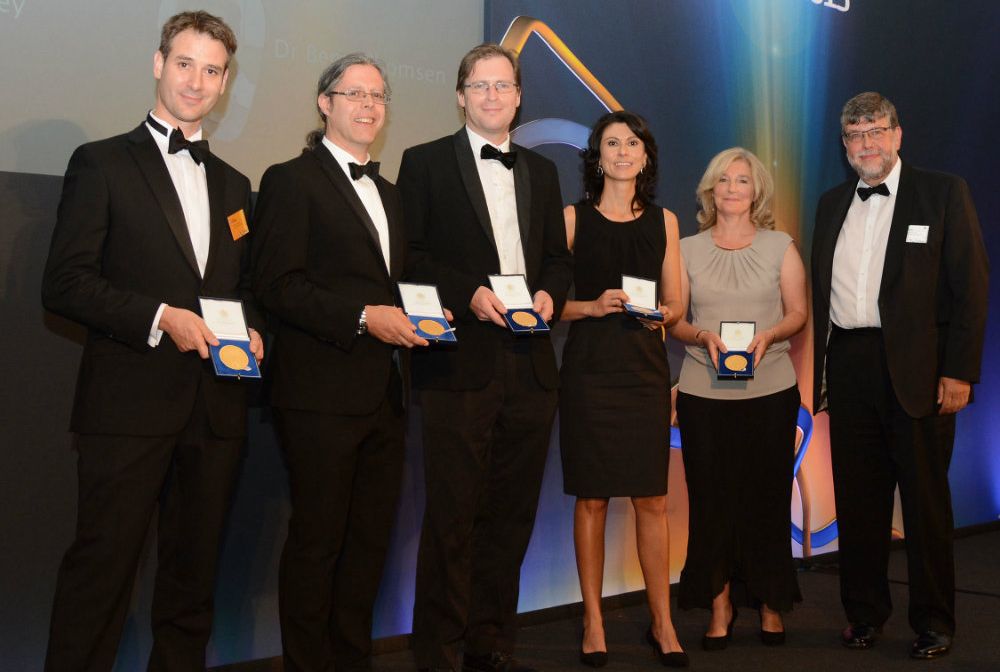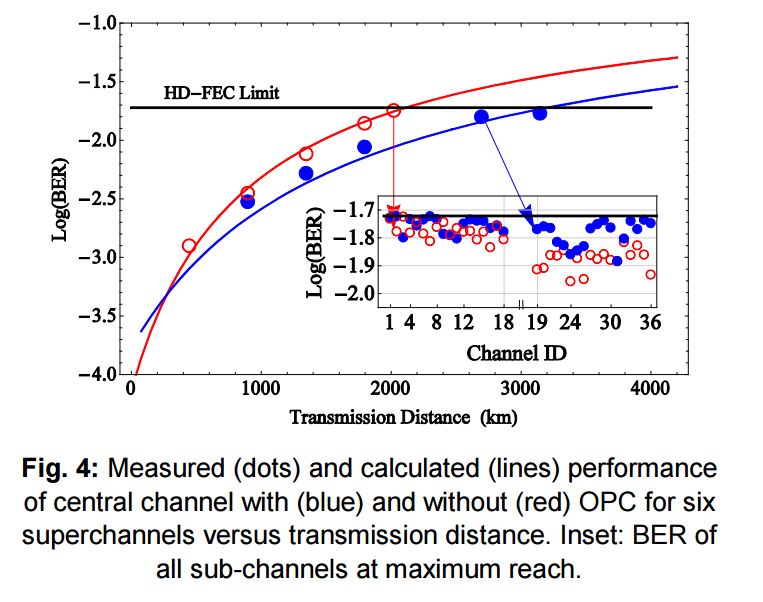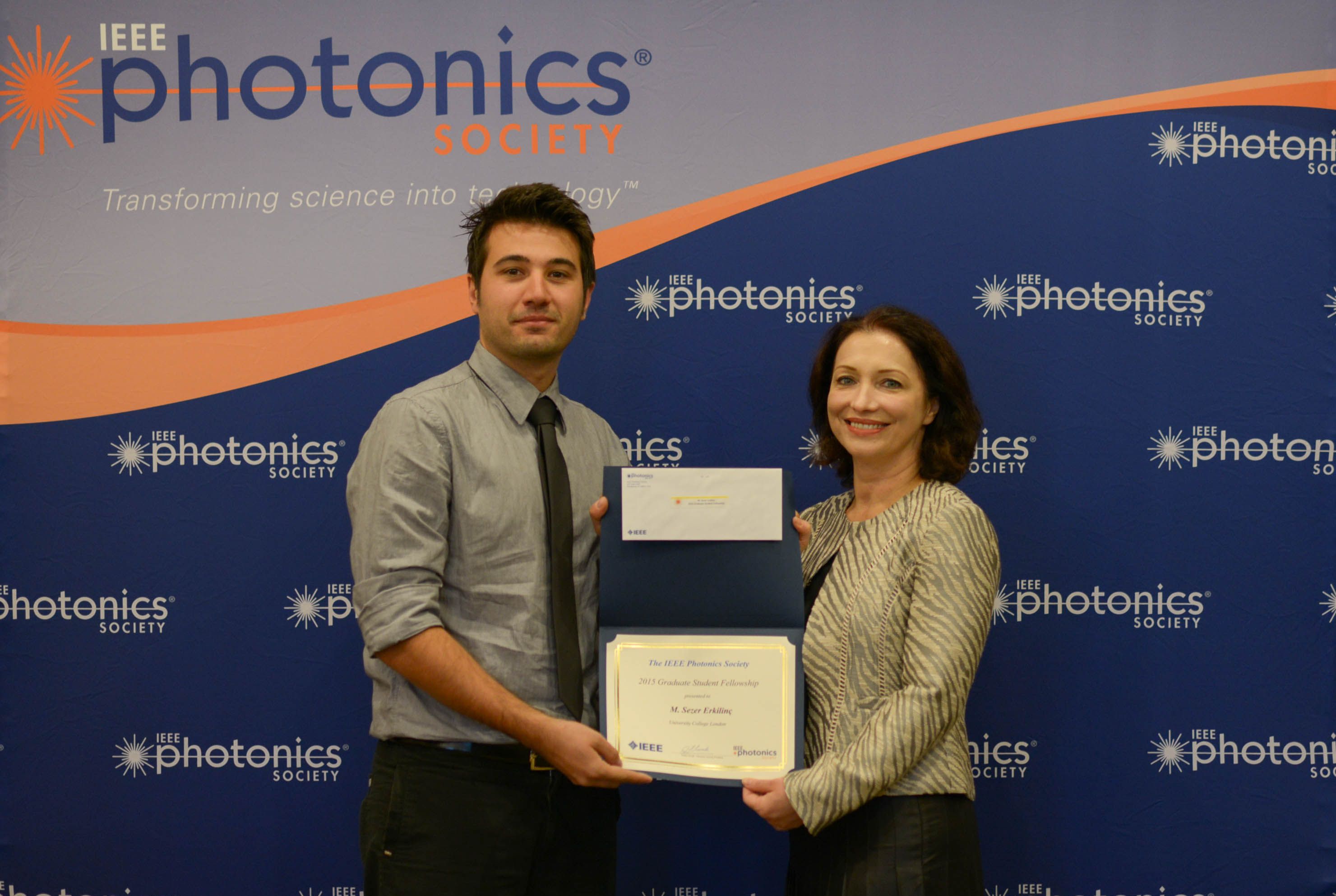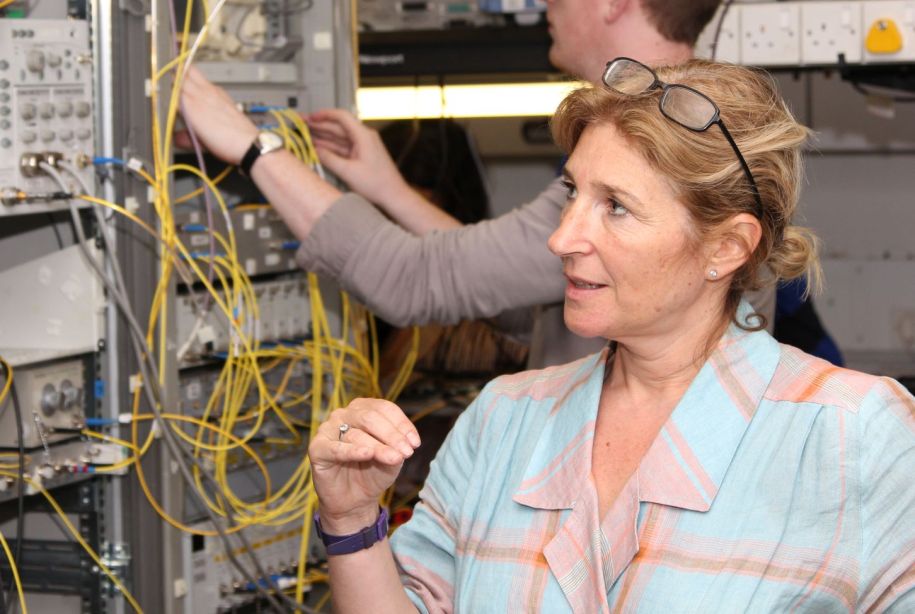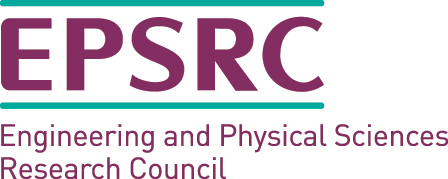|
View this email in a browser
|
UNLOC Newsletter, December 2015
|
|
|
Welcome to the December 2015 UNLOC Newsletter,
In this last issue for 2015, we take a look back at key moments throughout the year, which reflect the commitment and hard work of our team to
"unlock the capacity of optical communications". Read through the Highlights & Achievements section, browse through our Latest News,
learn about the latest research in Spotlight on Research, find out about the members of our team who have been specially recognised for their work,
and check how we engage the public in learning about optical communications. Finally, from the entire team we wish you a bright and happy holiday season with
expanding personal and network capacity in the coming 2016.
UNLOC is a 5 year research project jointly led by researchers at UCL and Aston University.
The project is funded by the EPSRC and receives support from numerous industry partners.
|
| Highlights & Achievements
|
|
|

|
|
2015 sees highest impact of UNLOC research
Research productivity has peaked for UNLOC researchers this year
who published 29 journal papers, more than half of which are open access.
The team presented 35 papers at 15 international conferences around the world with more than 10 invited talks, and organised two scientific workshops, one of which at the Royal Society in London.
|
|

|
|
UNLOC team demonstrate benefits of nonlinearity compensation technique
In recent work, led by Prof. Andrew Ellis, UNLOC researchers experimentally demonstrated,
for the first time, the potential of optical phase conjugation as a technique for compensation of nonlinearities in optical fibre super-channels.
Read more in the "Spotlight on Research" section below.
|
|
|
|
|
|
UNLOC investigators Andrew Ellis, Polina Bayvel and Sergei Turitsyn discuss the need of future investment
in true fibre infrastructure in an article recently published in The Conversation.
|
| |
|
|
|
|
In a paper presented at ECOC2015 and soon to be published in the Journal of Lightwave Technology, UNLOC researchers experimentally demonstrate the
benefit of polarisation-insensitive dual-band optical phase
conjugation for optical super-channels using
a Raman amplified, 75km transmission link. Inter-channel nonlinear penalties were substantially eliminated allowing a ~50% increase in
reach for six simultaneously transmitted 400 Gbit/s 16QAM
super-channels. This represented a record total bit rate of 2.4 Tbit/s using a single
dual-band OPC.
|
| |
|
Cost-effective coherent receiver for optical access networks
While coherent detection has boosted the performance of core networks, current coherent receivers remain prohibitively complex and expensive to be
deployed directly in optical access networks.
In an invited paper to the Journal of Lightwave Technology, UNLOC researchers describe the design of a simplified
polarisation-insensitive coherent receiver and experimentally verify its performance for long-reach WDM passive optical networks.
Preliminary results were presented at the ECOC 2015 conference.
The paper will be published in early January 2016.
|
|
| |
|
Super-channel transmission with multi-channel digital back propagation achieves record transmission distance
The UNLOC team at UCL published a paper in Nature's Scientific Reports in February this year, demonstrating record gain of 85% in transmission reach, effectively increasing the maximum
transmission distance from 3190 km to 5890 km, with an information spectral density of 6.60 b/s/Hz.
Following a press release, the research was also widely covered by national press.
A month later at the OFC 2015 conference,
the team demonstrated an enhancement of 100% for DP-64QAM systems using the same technique in combination with optimised FEC.
|
|
| |
|
| View list of UNLOC publications... |
| |
|
|
|
|
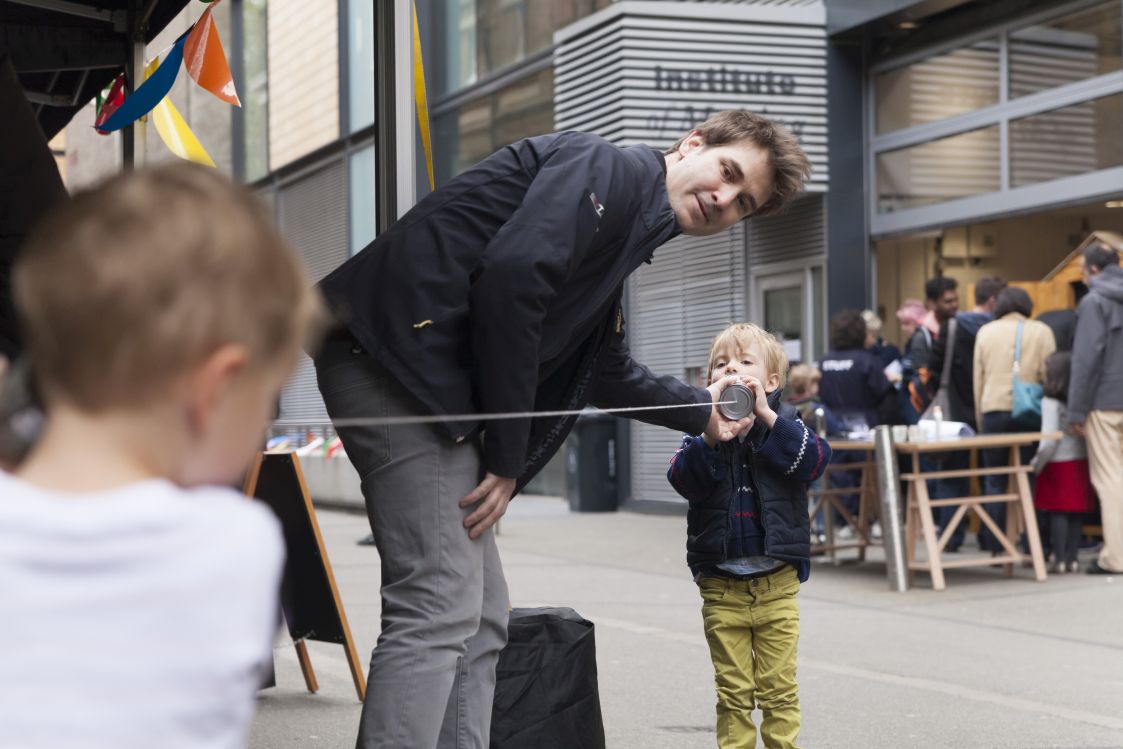
|
|
Benn Thomsen wins UCL Engineering Engagement Award
UNLOC researcher and Senior Lecturer at the Electronic & Electrical Engineering Department at UCL Dr. Benn Thomsen received the Provost's Engineering
Engagement Award for his commitment and outstanding contributions to education and public outreach.
|
|
|
|
|
|

|
|
A Royal Society discussion meeting co-organised by UNLOC investigator, Andrew Ellis spurred a broad
debate among scientists and policy makers about the direction of future research and regulations which can help avoid a possible
network capacity crunch.
|
|
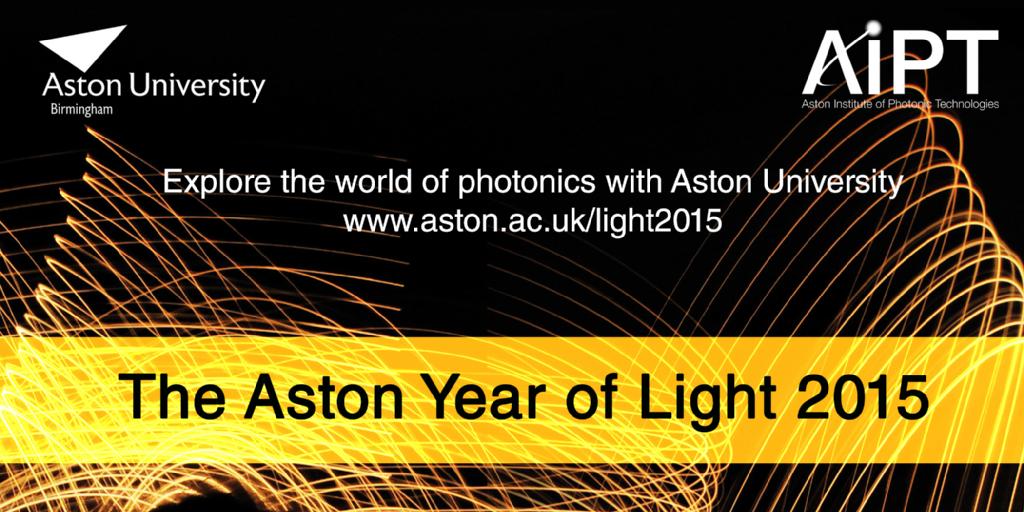
|
|
The Aston Institute of Photonic Technologies hosted a two-day "Year of Light" workshop bringing together leading experts
and young researchers to discuss future trends and challenges in the field of photonics.
|
|
|
| Public Engagement & Outreach
|
|
|
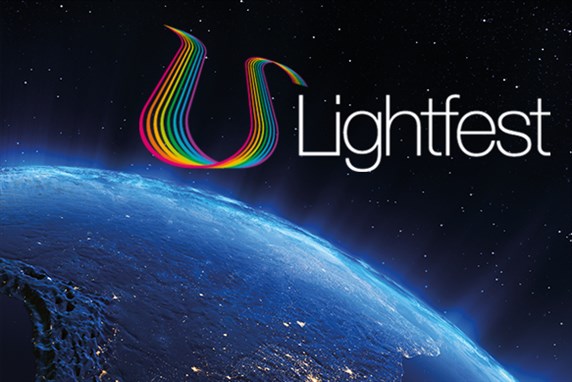
|
|
UNLOC co-organises the Ligthfest Exhibition
UNLOC's lead partner Aston Institute of Photonic Technologies joined forces with the Library of Birmingham
and the Flatpack Film Festival to present the first ever Lightfest Exhibition to the citizens of the greater Birmingham area.
|
|
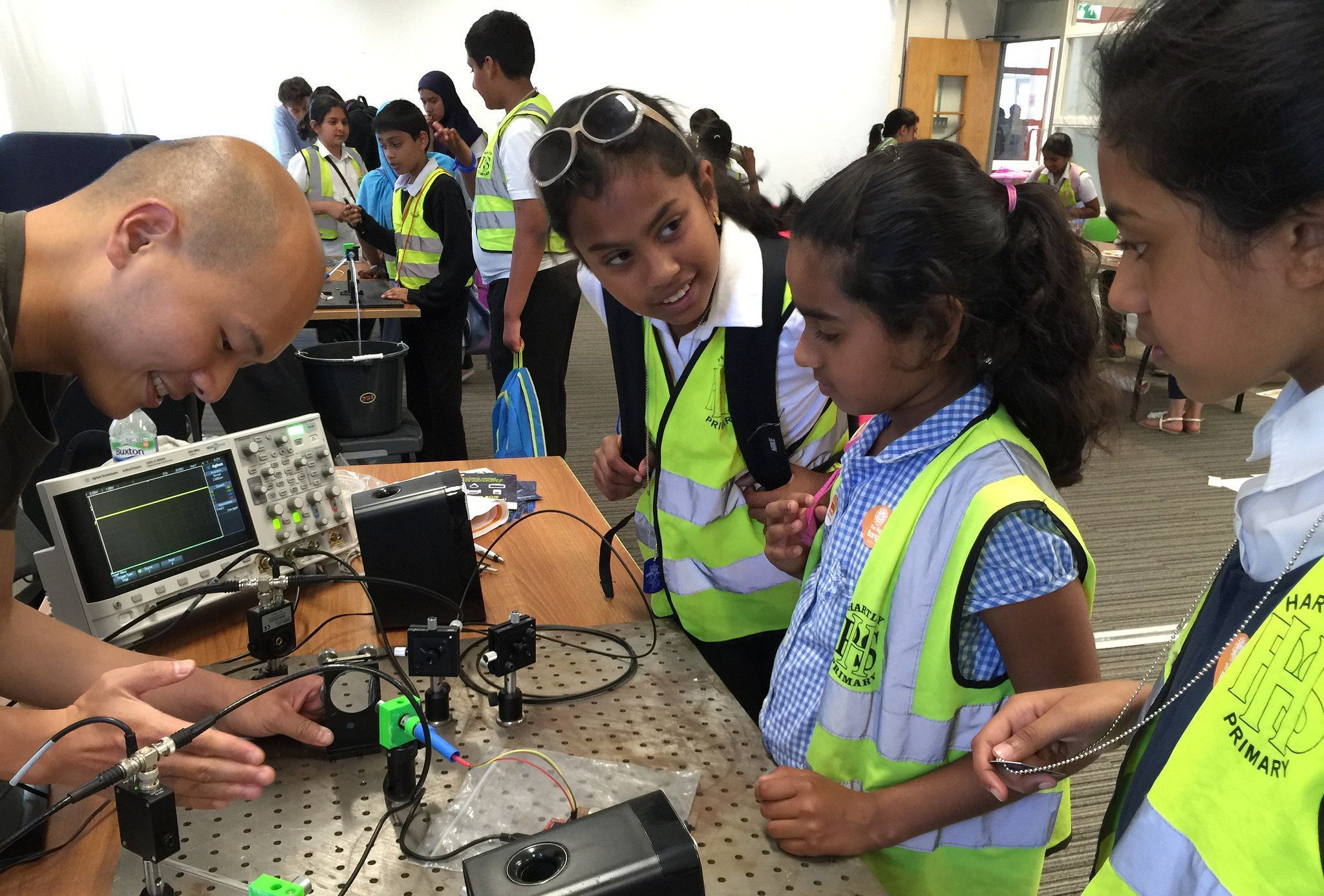
|
|
UNLOC lightens up the Big Bang Fair
Members of the UNLOC project were heavily involved in multiple outreach activities at the Big Bang Fair at
Newman College and Westminster Kingsway College which took place on 30 June and July 1st this year.
|
|
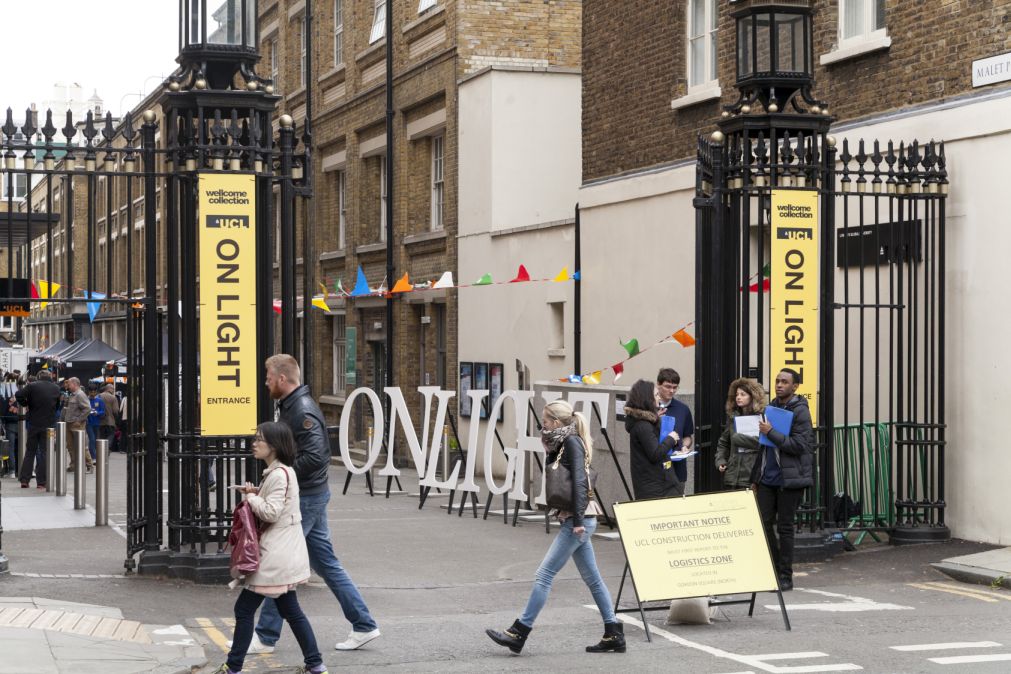
|
|
Celebrating our human relationship with light
Visitors to the OnLight Festival organised by the Wellcome Collection to "illuminate our human relationship with light" enjoyed
multiple interactive demos and discussions at the UNLOC booth.
|
|
|
You are receiving this email because you are subscribed to the UNLOC contact list.
Click here if you wish to unsubscribe. |
|



